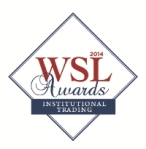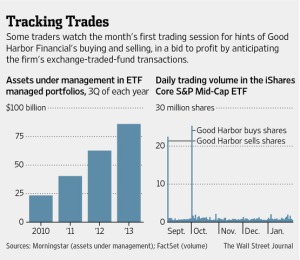 Breaking News..New York, NY Feb 25 Latest Update: 9.45 pm EST
Breaking News..New York, NY Feb 25 Latest Update: 9.45 pm EST
At a gala financial industry awards ceremony hosted by Wall Street Letter to recognize the year’s top investment banks, institutional brokers and trading technology providers, 300 of the financial industry’s senior executives gathered tonight to salute their peers in a best-in-class competition extending across 20 categories. Thanks to tweets sent from attendees during tonight’s dinner event, MarketsMuse is first to report the following announcements midway through the evening’s program:

Spotlighting one of the most talked-about service offerings in today’s brokerage industry landscape, in the category “Best DMA Offering,” agency-only execution specialist WallachBeth Capital took home the gold, with Bloomberg’s Tradebook and Object Trading receiving honorable mentions. WallachBeth’s electronic trading/DMA group was launched in 2013 to complement the firm’s widely-recognized ETF, Options, Delta One trade desks and healthcare sector equities research team. The firm’s trading system technology platform is powered by OEMS solutions vendor OMEX Systems.
Sunguard Financial Systems, Instinet, Wolverine Execution Services, Tethys Technol0gies, Inc, Advent Software, Interactive Brokers, ITG Inc. and Bloomberg LP‘s Tradebook were among the other top contenders in several of the 20 brokerage and technology categories.
The 2014 WSL Institutional Trading Award for “Best Broker-Dealer/Research,” a new category that combined providers of equities research and fixed income content, Newport Beach-based Mischler Financial Group was selected best-in-class in which the 2 other contenders for that top spot were Stifel Nicolaus, the BD subsidiary of Stifel Financial, and investment bank Sandler O’Neil + Partners. Mischler Financial is a full service investment bank/institutional brokerage and the securities industry’s oldest and largest minority firm owned and operated by service-disabled veterans. The firm specializes in primary debt capital markets, fixed income syndicate market commentary and operates a 24/6 global institutional equities execution platform.
At press time, the winner of WSL’s 2014 Best Broker Dealer/Client Service was in the process of being announced. Contenders for this coveted award included BNP Paribas Securities Services, Northern Trust Securities, Sunguard Financial Systems, WallachBeth Capital, Bloomberg Tradebook and Mischler Financial.
Officials of Pageant Media, Ltd., the UK-based media giant and parent of Wall Street Letter announced the official listing of winners will be available at Wall Street Letter website.




